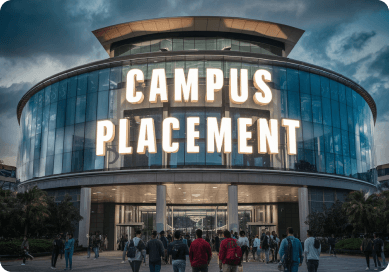Enter OTP



Marburg, Germany

Marburg, Germany

Undergraduate Fees International Students

Post Graduate Fees International Students

Founded in 1527, Marburg is one of Germany’s oldest universities—and the oldest Protestant university still in operation. Its reputation shines most in the natural sciences (biology, chemistry, psychology), especially in microbiology and tumor research, supported by consistent high rankings in national evaluations. With ca. 14% international student presence—the highest in Hesse—the institution offers strong global exposure alongside personalized, interdisciplinary education in a cozy, student‑centered town of ~77,000 people
Jacob Grimm, one half of the famous Brothers Grimm, studied law and philology at the University of Marburg. His time at ... View More
Jacob Grimm, one half of the famous Brothers Grimm, studied law and philology at the University of Marburg. His time at the university sparked his deep interest in linguistics and German folklore. He later co-authored Grimm's Fairy Tales and contributed significantly to the development of the German language dictionary (Deutsches Wörterbuch). View Less
Friedrich Carl von Savigny, a prominent 19th-century legal scholar and the founder of the Historical School of Law, was ... View More
Friedrich Carl von Savigny, a prominent 19th-century legal scholar and the founder of the Historical School of Law, was both a student and professor at the University of Marburg. His work on Roman law and legal philosophy has had a lasting impact on civil law traditions in Europe. View Less
Otto Hahn, a Nobel Prize-winning chemist, studied and later taught at the University of Marburg. He is best known for hi... View More
Otto Hahn, a Nobel Prize-winning chemist, studied and later taught at the University of Marburg. He is best known for his discovery of nuclear fission, which laid the scientific groundwork for nuclear energy and atomic research. His breakthrough came while working with Lise Meitner, and his early education at Marburg was foundational to his scientific career. View Less
Renowned political theorist Hannah Arendt studied philosophy at Marburg under the mentorship of Martin Heidegger. Her ti... View More
Renowned political theorist Hannah Arendt studied philosophy at Marburg under the mentorship of Martin Heidegger. Her time at the university influenced her intellectual formation and led to her groundbreaking works on totalitarianism, authority, and human rights, such as The Human Condition and The Origins of Totalitarianism. View Less
Although more famously associated with Freiburg, Martin Heidegger spent part of his academic career teaching at the Univ... View More
Although more famously associated with Freiburg, Martin Heidegger spent part of his academic career teaching at the University of Marburg, where he influenced many future philosophers, including Hannah Arendt and Hans-Georg Gadamer. His time at Marburg is considered one of his most intellectually productive periods, particularly while developing his major work, Being and Time. View Less
Marburg University is split across two main areas: Firmanei, located in the historic city center, and Lahnberge, a modern campus to the east hosting science, medical, and administrative buildings. Facilities include state-of-the-art lecture halls, specialized labs for material sciences and physical chemistry, and the University hospital on Lahnberge. Modern amenities like Wi-Fi, scanning stations, and dedicated writing workshops enhance study convenience.
Life at Marburg is vibrant, with numerous student-run organizations, interdisciplinary cultural events, music ensembles (choir, symphony, big band), and a lively social calendar including “Ersti‑Partys” and Fachschaften events. The university’s community spirit is bolstered by a rich mix of volunteering, arts, and campus media opportunities.


The Central Student Counselling & Career Service helps students navigate career paths, matches them with internships, reviews CVs and application letters, and offers workshops in collaboration with the Employment Agency. Students can also participate in language courses and receive support for studying abroad or returning home.
The below information is required while
completing the university application :
Equivalent to the German Abitur (e.g., CBSE/ISC for Indian students + Studienkolleg if required).
German Language Proficiency
For most bachelor's programs (taught in German), proof of German is mandatory:
TestDaF (min. 4x4), DSH-2, or Goethe-Zertifikat C1.
Entrance Qualification Recognition
Applicants from non-EU countries may need to apply via uni-assist to validate their secondary school certificates.
Preparatory Course (Studienkolleg)
Required if your high school certificate is not directly equivalent to the German Abitur. Completion of the Feststellungsprüfung (FSP) is necessary after Studienkolleg.
English Proficiency
Required only if the chosen bachelor's program is taught in English (rare at undergraduate level in Marburg).
Know moreMarburg’s Career Centre and School of Business & Economics Career Service foster connections between students and regional employers via job portals, internship listings, and thesis placements—all hosting major companies free of charge. The university’s annual fair „Karriere der Vielfalt” (Career of Diversity), held in late 2024, featured ~40 local exhibitors across various sectors and offered tailored sessions for international students. Additionally, the Economics & Middle East Economics MSc program invites guest lectures and field visits from firms like McKinsey, Deutsche Börse, Amazon, Daimler, KPMG, and BioNTech—strengthening practical ties.



Marburg's student iGEM team clinched first place at the international iGEM Synthetic Biology competition (Paris, 2024)—its third title since 2018—and earned multiple category awards, underscoring Marburg’s strength in synthetic biology and interdisciplinary collaboration. In May 2025, two major DFG-backed Clusters of Excellence were awarded to Marburg: “Microbes for Climate” (M4C) and “The Adaptive Mind” (TAM). Both clusters span multiple institutions and disciplines, cementing the university’s leadership in climate-microbe research and cognitive neuroscience/AI convergence


Siemens and FAU launched an expanded Research and Innovation Ecosystem (RIE) in 2020 to foster deep collaboration in AI, sustainability, and digital transformation across academia and industry.
FAU was ranked Germany’s Most Innovative University by Reuters in its Top 100: Europe’s Most Innovative Universities ranking. It was also placed #2 in Europe and #31 globally, thanks to its strong patent output and academic-corporate collaborations.
In a national innovation ranking by DFG and Elsevier, FAU was listed among the Top 10 most innovative German universities, thanks to its high publication rate, citations, and patent registrations.
FAU researchers achieved a major milestone in biomedical engineering by developing a synthetic cornea for transplant purposes, significantly impacting ophthalmic treatments in Germany and beyond.
The German Excellence Initiative recognized FAU’s SAOT program in 2005, funding it as a leading center for research in photonics and optical technologies—one of FAU’s strongest research domains.
Marburg is at the forefront of synthetic microbiology through SYNMIKRO—the LOEWE-powered center jointly operated with the Max Planck Institute for Terrestrial Microbiology. It has secured over €50M (2010–2018) and continues expanding microbial engineering efforts, including the RobuCop initiative for synthetic chloroplasts (€4.4M funding through 2028) and development of sustainable carbon fixation strategies.. Emerging innovation ecosystems in Marburg—bolstered by CSL Behring Innovation, local startups, and joint events like the Tiny Festival—reflect a strong emphasis on knowledge transfer, biotechnology entrepreneurship, and collaborative regional growth. Research-support infrastructure is also rich: the Marburg University Research Academy (MARA) offers doctoral/postdoctoral development through transferable‑skills workshops and early researcher networks
FAU has developed advanced simulation software for the X‑IFU instrument aboard ESA’s ATHENA observatory—allowing pre-flight optimization of equipment destined for high-energy astrophysics missions in the 2030s.
At FAU’s University Hospital in Erlangen, researchers are advancing tissue engineering using specialized 3D‑printing methods to fabricate functional human tissue—paving the way for biofabrication in surgery and reducing reliance on animal testing.
FAU researchers, in collaboration with Mainz and Kassel, built the world’s smallest heat engine, operating on a single calcium atom held in an ion trap. Physics World named it one of the “Top Ten Breakthroughs of the Year.”
Within the DFG-funded EAM Cluster, FAU developed over 75 patents, demonstrated novel functional materials (nanoelectronic, photonic, catalytic, lightweight), and secured 8 demonstrator technologies. Its interdisciplinary research has transformed materials engineering.













Embark on your educational journey with confidence! Our team of admission experts is here to guide you through the process. Book a free session now to receive personalized advice, assistance with applications, and insights into your dream school. Whether you're applying to college, graduate school, or specialized programs, we're here to help you succeed.
